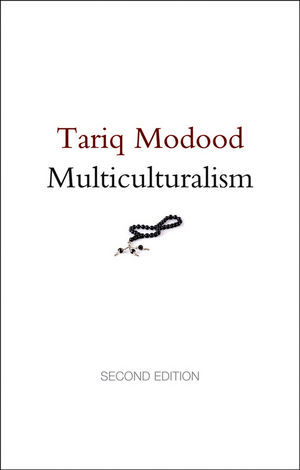The question of how Muslims fit into Western societies has been an uncomfortable one for many, especially in the years after 9/11. Considering the centuries-long well-documented history of Western suspicion towards Islam, constant chaos in the present-day Middle East does nothing to encourage level-headed discourse on how Muslim citizens are a part of increasingly diverse Western societies.
Yet, in light of research that suggests that many of the young Western Muslims being lured into the arms of groups like ISIS are often drawn to such groups due to a lack of a sense of belonging in society, understanding how to promote a real sense of belonging is of considerable importance.
Furthermore, as Olivier Roy has noted in his research into radicalization, though few radicals are religious Muslims, a misguided focus on Islam through the exclusive lens of counter-terrorism ironically serves only to "validate the narrative of persecution and revenge that feeds the process of radicalisation."
Most Muslims in Britain do seem to feel at home here -- after all they've been here for several generations in many cases, often building vibrant British-Muslim communities, and have nowhere else to call home. There are, however, significant factors that could make them feel disenfranchised from wider society.
It does not help, for example, that the news media provides an unending narrative of war between Western nations and groups that claim to be Islamic. Given the stakes involved today, we must ask: why is it that some young Muslims feel so alienated from mainstream society, and indeed, their own well-integrated communities? Put another way, how can a greater sense of belonging for Muslims in the West be engendered?
One compelling answer I have come across for this latter question is to be found in the admittedly theoretical writings of Tariq Modood, founding Director of the University of Bristol's Research Centre for the Study of Ethnicity and Citizenship. His 2013 work, Multiculturalism: A Civic Idea, is perhaps the most concise yet comprehensive articulation of the doctrine of multiculturalism by one of its leading proponents. Much of the work is a corrective to the narratives in recent years of the so-called 'failure' or 'death' of multiculturalism as an idea.
Modood covers a raft of issues, all connected to the place of Muslims in Western societies. Among other topics, he considers various forms of racisms, which he divides into "color" as well as "cultural" racisms (p. 41).
On reflecting on the concept of equality, he notes that people who identify with a certain group, be it on the basis of race or religion, may find that others conceive of and treat such people "as inferior, less rational and culturally backward" (p. 47). This is frequently the case for many Muslims in Western countries today, at least in the way they feel they are often represented in much of the media and political discourse.
Modood's work is, however, much more nuanced and wide-ranging than this brief remark suggests: he by no means wishes to reduce the identity of Muslims to its religious component. His policy suggestions are noteworthy because they point up the importance of religious identity to many Muslims which a secular society is generally inclined to ignore. Ignoring this component can contribute to the alienation of many Muslims, the majority of whom simply want to be accepted into society, rather than viewed as not belonging to diverse Western societies as full citizens. In making this argument, Modood advocates a "moderate" as opposed to "radical" or "ideological" secularism in Western societies, that does not simply reject religion out of hand (Chapter 4).
Modood notes the argument, "commonly found in the op-ed pages of the broadsheets," that the demands to recognize Muslims' religious identity is different from other historically marginalized groups, in that being Muslim is a matter of choice (p. 65). Whereas a black person can never change his or her skin color, a Muslim chooses his or her religion, and hence, doesn't need special protections from the law.
According to this view, secular laws must remain neutral between different religions. Modood calls this view "naive (and a political con)." He cogently points out that people do not choose to be born into Muslim families, or into a society in which "looking like a Muslim or to be a Muslim creates suspicion, hostility, or a failure to get the job you applied for." Once again, this is merely a snippet of a very thoughtful treatment of a challenging but important subject.
Multiculturalism has been (mis-)characterized by some as even contributing to terrorism in the West (p. 10). However, as Modood argues, this is only a caricature of the ideas that he and other leading theorists promote. Multiculturalism is rather more about the inclusion of diverse views in the public conversation so that the various viewpoints found in our diverse societies can enrich each other.
I would argue that this is crucial to achieving a stronger sense of British identity for young Muslims; and as a consequence, it would lessen the appeal of such groups as ISIS, that prey on the alienated and disenfranchised.
Ultimately, the antidote to bad ideas and unsound thinking, whether of the ISIS variety, or of Fox News, is to critique them in reasoned public discourse. Modood provides us and our governments with clear proposals as to the direction we ought to be going; and although he wrote his work before the rise of ISIS, in many ways it is more relevant today, than when it was first published.
